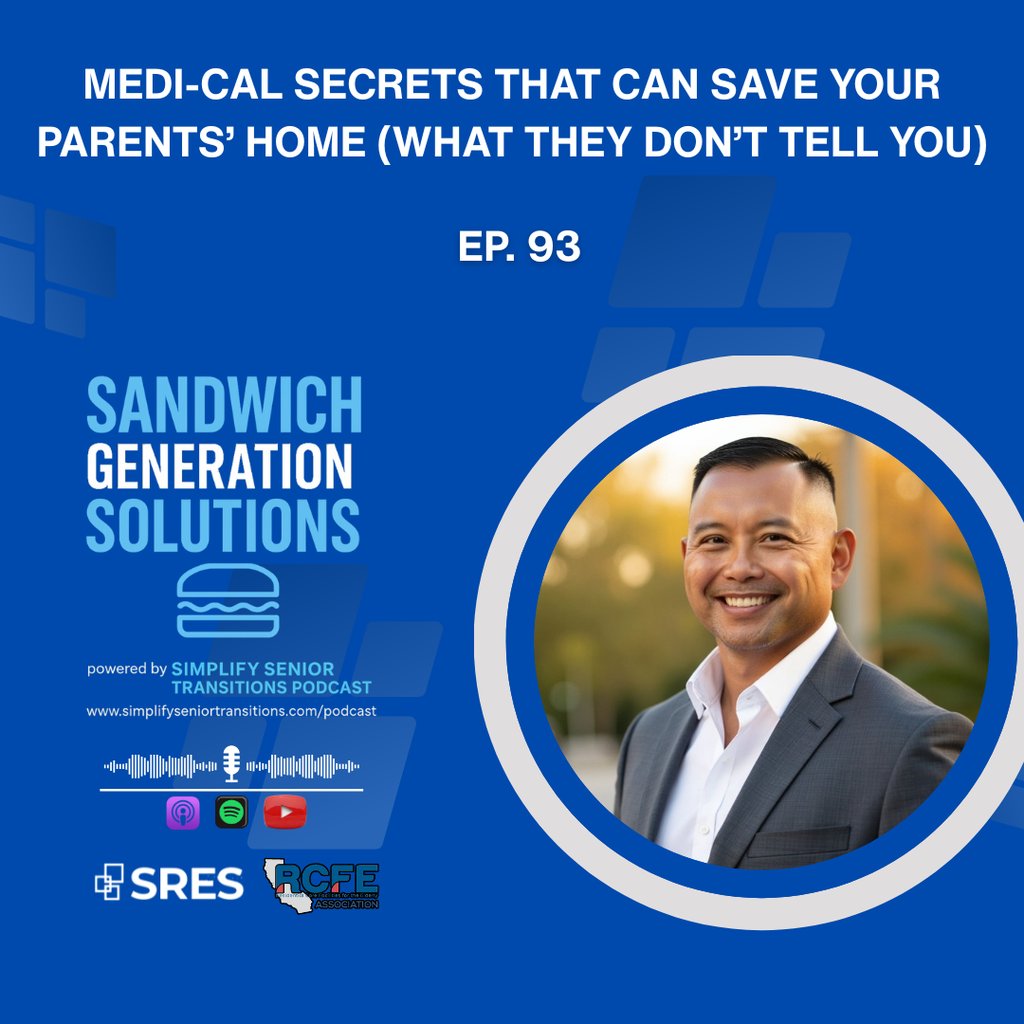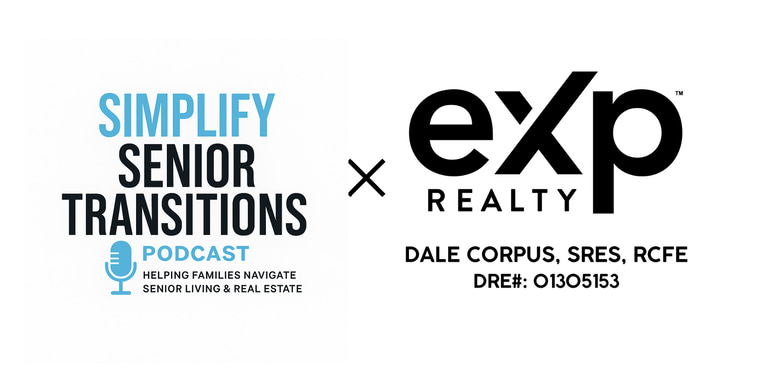Bay Area Caregiver Alert: The Medi-Cal Secrets That Could Save Your Parents' Home
How to protect your parents’ assets, avoid estate recovery, and plan early for care without selling the family home.
Dale Corpus
10/19/20254 min read
Bay Area Caregiver Alert: The Medi-Cal Secrets That Could Save Your Parents' Home
If you are one of the many adult children in the Bay Area—especially in Contra Costa, Alameda, Santa Clara, San Mateo, San Francisco, Solano, or Napa counties—navigating the emotional and financial whirlwind of helping aging parents transition to senior living, you are not alone.
Caregiving is overwhelming. You might be struggling with the stress of downsizing, the massive challenge of selling a long-time family home, and figuring out how to afford care that costs $6,000 to $8,000 a month here.
Many families worry that seeking financial aid like Medi-Cal means they automatically have to sell their parents’ home in a panic. But knowing the right strategies can literally save your parents' home and preserve assets.
Here's what you'll learn in this episode:
Why "free Medi-Cal" is a myth and the truth about Medi-Cal Estate Recovery.
The crucial difference between an exempt asset (the home while your parent is alive) and a recoverable asset (the home after they pass).
How simple planning tools like trusts and Transfer-on-Death (TOD) deeds can prevent the state from recovering care costs from the property.
Hidden rules, like the 30-month lookback period and the "share of cost" trap, that impact eligibility.
The importance of planning early to protect assets and eligibility before a hospital stay limits your options.
The Shocking Truth About Medi-Cal Estate Recovery
Many adult children assume that once a loved one qualifies for Medi-Cal, the long-term care they receive—which covers nursing homes and programs like Assisted Living Waiver (ALW) or Master Care—is free.
The truth is that Medi-Cal is needs-based, not free.
As shocking as it sounds, after a Medi-Cal recipient passes away, the California Department of Health Care Services (DHCS) can seek repayment from assets left behind — a process known as Estate Recovery.
If your parent was 55 or older and received certain benefits, the state can recover the cost of those benefits from their estate. This often catches families completely off guard, just like Evelyn's family in Walnut Creek, who received a claim letter despite thinking all their care bills were paid.
If planning isn't done ahead of time, a lien can even be filed against the home.
Protecting Your Parents’ Legacy: Avoid Probate
For Bay Area homeowners, protecting the home from recovery often comes down to one strategy: avoiding probate. California law allows DHCS to recover costs only from probate estates. If the home avoids probate, it is often exempt from Estate Recovery.
If your parents’ name is the only one on the title, the home may fall into probate after they pass, opening the door for estate recovery.
Tools you can use now to title the home correctly and protect it include:
Revocable Living Trusts: The "gold standard" for most homeowners in the Bay Area.
Transfer-on-Death Deeds (TOD deeds): Easier and less costly to file than trusts.
Life Estate or Joint Tenancy Arrangements: Be mindful that these have tax and control implications, so always consult an attorney.
Remember, while the primary residence is an exempt asset while your parent is alive—meaning they usually don’t have to sell it to qualify for Medi-Cal—this exemption is not automatic after death. Review how the home is titled before a crisis hits.
Hidden Secrets and Planning for Bay Area Care Costs
Don't assume your parents won't qualify for Medi-Cal just because they own a home or have some savings. Planning tools like spend-downs, annuities, or Medi-Cal compliant trusts can help.
Even spouses who remain at home (community spouses) are protected from being left with nothing.
If planning is done correctly, like the Rodriguez family in Fremont, you can ensure your parent receives necessary care and zero estate recovery exposure, saving your family six figures.
However, there are pitfalls you must know:
The Look-Back Rule: Medi-Cal can review financial transfers (like big gifts or sales under market value) made up to 30 months before applying for long-term care coverage.
Share of Cost: Some seniors will have to contribute part of their monthly income toward care, known as a share of cost.
Facility Participation: Not all senior communities accept Medi-Cal. You must specifically ask if a facility participates in programs like ALW or MasterCare.
The Power of Planning Early
Waiting until after a fall or hospital stay severely limits your options for protecting assets and finding suitable care.
I have seen too many families wait, only to spend months trying to untangle probate or deal with denied Medi-Cal applications.
Planning early empowers you to create a financial bridge to fund care without needing to sell the home under duress.
If your loved one is considering senior living and you need to figure out what to do with their home, you deserve to have options and peace of mind.
This information, including this blog, is not legal advice, but an urgent call to action to speak with professionals. Talking to an Elder Law attorney and Senior Transition Professional before a crisis hits is the most critical step.
Ready to Get Clarity on Your Senior Transition?
Schedule a FREE consultation and learn more about navigating the emotional and financial side of senior living and caregiving at
👉 www.simplifyseniortransitions.com
You can also listen to the full discussion on the Sandwich Generation Solutions Podcast, powered by the Simplify Senior Transitions Podcast — available on YouTube, Spotify, Apple Podcasts, and all major platforms.
For quick questions, DM Dale directly on Instagram @soldbydale.
📩 Got news or an amazing story to share?
Email us at dale.corpus@exprealty.com — you might be featured in our next episode!
Watch The Podcast Here



Transitions Made Simple
Helping seniors transition with ease and peace.
📍 Serving the San Francisco Bay Area
📞 GET IN TOUCH
📬 STAY INFORMED
Dale Corpus, SRES, RCFE
📱 925-380-1657
📧 dale@simplifyseniortransitions.com
🕓 Available for free 15 min consultations by appointment
© 2026. All rights reserved.
Sign up for monthly senior transition tips & real estate insights.
